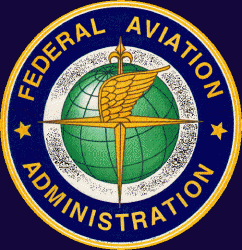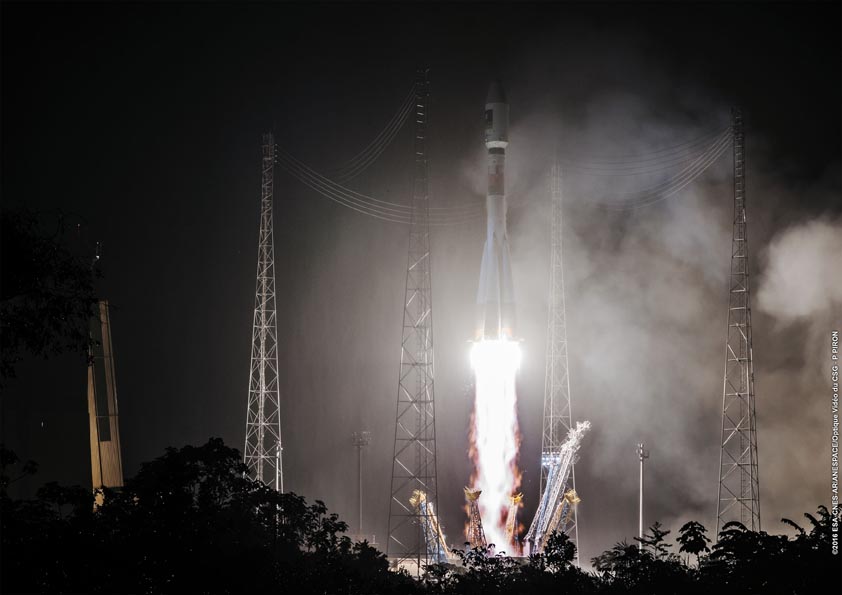
Discussions continue on the pros and cons surrounding the possible privatization of the nation’s Air Traffic Control (ATC), with opponents sharing concerns and a proposal by President Trump aimed at looking into taking the air operations duties away from the Federal Aviation Administration (FAA).
Discussions continue on the pros and cons surrounding the possible privatization of the nation’s Air Traffic Control (ATC), with opponents sharing concerns and a proposal by President Trump aimed at looking into taking the air operations duties away from the Federal Aviation Administration (FAA).
This past week, White House officials argued for privatizing the ATC system. Notably missing from the discussion was the question of how businesses in rural areas would be impacted by the President’s proposal, according to the Alliance for Aviation Across America (AAAA). Also, proponents of privatization continue to downplay the complexity and timing associated with air traffic control privatization.
This point was underscored by Craig Fuller in The Hill newspaper: “Other countries have separated their (much smaller) air traffic control functions from government. These efforts have been carefully studied here in the U.S. One reality is clear: the transition takes years. Given the current achievements and pace of modernization occurring in the U.S., major structural reform now could actually slow the progress we are making — and there’s no guarantee such an effort would create savings.”
Senate Hearing on Rural Air Service and General Aviation
Also, the U.S. Senate Commerce Committee held a hearing entitled, “FAA Reauthorization: Perspectives on Rural Air Service and the General Aviation Community.” During that hearing, members highlighted the importance of protecting rural air service and connectivity.
U.S. Senate Commerce Committee Chairman John Thune (R-South Dakota) said, “Access to the national air transportation system is a serious concern for those who live or work long distances from even the smallest airports. Connectivity for small and rural communities is vital to the economy.”
In response to these concerns, major rural and agricultural organizations last week released a letter urging Congress to oppose privatization of our nation’s air traffic control system due to the potential harmful impact of this proposal on rural communities and farms across the United States.
According to the letter, shared by the AAAA, “Rural communities, agriculture and small businesses stand to lose the most under a privatized system, where there would be no Congressional oversight to ensure that all stakeholders and communities have access to air transportation … Under a privatized system, a private board dominated by the largest commercial operators would undoubtedly direct resources and investments to the largest hub airports and urban areas where these investments would be most likely to benefit their bottom line.”
On April 6, the Agriculture Retailers Association, the AAAA, Crop Life America, League of Rural Voters, National Agricultural Aviation Association, National Council of Agricultural Employers, National Farmers Union, National Grange of the Patrons of Husbandry, National Women in Agriculture Association, and USA Rice Federation released the letter. The proposal to privatize air traffic control is being pushed predominantly by the big, commercial airlines, and would take air traffic control away from Congressional oversight and put it under the purview of a private board of mostly commercial interests. The board would direct everything from taxes and fees, to airport investments and access, proponents state.
This group of rural and agricultural organizations joins a growing number of voices raising concerns about the proposal to privatize the air traffic control system, including local elected officials, consumer advocates, free market groups, major Committees in Congress, chambers of commerce, small businesses, and the American voters.
The full text of the letter is below.
Dear Chairman Shuster, Ranking Member DeFazio, Chairman Thune and Ranking Member Nelson:
As you debate reauthorization of Federal Aviation Administration (FAA) in the coming months, I write to ask for your support of a long-term FAA authorization that maintains Congressional oversight of the nation’s air traffic control system. We are specifically concerned that a recent proposal in Congress to remove oversight of the nation’s air traffic control system, and put this vital infrastructure under the control of a private entity dominated by the commercial airlines, threatens the vital infrastructure that we count on every day.
Rural communities, agriculture and small businesses stand to lose the most under a privatized system, where there would be no Congressional oversight to ensure that all stakeholders and communities have access to air transportation. For example, there are over 5,000 airports across the United States, over 3,300 of which are public-use airports. Yet, there is only commercial service at 509 airports, and airline capacity is dwindling – by about 20 percent in recent years in particular. That means that for the majority of our communities around the country, small airports and general aviation are a literal lifeline to local communities, industries and businesses.
These airport and businesses support local economies and agriculture, connect businesses with far-off plants and customers, and facilitate access to many services, including medical care, disaster relief, organ and blood transport, law enforcement, search-and-rescue, and fire-fighting. They help our businesses stay connected, repair power lines, help farms to survey and protect their crops and allow companies to reach plants in remote areas of the country, among many other uses. In fact, each year, the agricultural aviation industry treats 71 million acres of cropland, out of the 408 million acres of cropland in the United States.
Yet, under a privatized system, a private board dominated by the largest commercial operators would undoubtedly direct resources and investments to the largest hub airports and urban areas where these investments would be most likely to benefit their bottom line. They could also shape and influence the system in many other ways to their benefit, including by leveraging many new fees and taxes, reducing access to airports for lower cost competitors and impeding access to particular airports. It is also unclear how important programs such as the Airport Improvement Program (AIP) would fare, which provide long-term funding in the form of federal grants to both large and small airports around the country, which are a lifeline to local communities and economies.
Agriculture, small businesses and rural communities are the backbone of our nation, and we need to protect our public infrastructure which ensures access to air transportation for communities of all sizes. Please say no to a privatized air traffic control system.
The letter was signed by the group of rural and agricultural organizations.
Last month the AAAA released the following statement in response to President Trump’s FY 2018 proposed budget, which includes the provision to privatize the nation’s ATC system:
“It is unfortunate that the President’s budget includes a proposal, pushed by the big commercial airline lobby, to privatize and give control over the ATC system to the big airlines, at the expense of the farms, businesses, and other important interests located in small towns and rural areas across America. This proposal would allow certain private interests to make critical system decisions ranging from infrastructure funding, to taxes and fees, according to their own best interest rather than that of the public. Already we see that privatized systems in other countries are run to the detriment of smaller operators and communities. We urge Congress to retain oversight of the national air traffic control system to ensure that it operates in the best interest of the public.”
Those concerns came on the heels of recent reports that proponents of privatizing the U.S. ATC have an apparently sympathetic ear in the White House as they renew their fight to wrest air operations from the FAA. Inside GNSS earlier reported that President Trump had criticized the FAA’s handling of ATC modernization, pointing out the ongoing issues with NextGen during a February 9 meeting with airline executives. For the complete article, as well as information about how ATC privatization raises serious questions about several issues related to satellite navigation, click here.
According to the AAAA, these communities, local airports and general aviation represent a vital connection for small businesses, farms, emergency responders and other critical services. Formed in 2007, the alliance is a non-profit, non-partisan coalition of more than 6,300 individuals representing businesses, agricultural groups FBO’s, small airports, elected officials, charitable organizations, and leading business and aviation groups that support the interest of the general aviation community across various public policy issues.
Proponents to privatization have said the change would hand over decisions about infrastructure funding, taxes and fees, consumer complaints, noise, and many other priorities, to a board of private interests dominated by the commercial airlines. These are the same airlines that have cut back flights to smaller communities by more than 20 percent in recent years, and have stated their intent to divert investment from small and mid-sized communities to large ones where the airlines are most profitable, according to the AAAA.
Most of the airlines want to privatize ATC as a way to stabilize funding and get Congress out of the process. Opponents, however, have voiced worries the public may be put at risk if the FAA, which is also the United States lead for air safety, is separated from ATC operations. There are also broad concerns about the impact on service to airports in more rural areas, and questions about the changes’ impact on general aviation, and about air travel prices.
According to a Reuters article published last month, Trump, who called the U.S. air traffic control system “obsolete” in a meeting with airline executives last month, is proposing $16.2 billion for the Department of Transportation’s discretionary budget for fiscal year 2018, a reduction of 13 percent.
Some Transportation Department budget items are paid through the highway gas tax fund.
The document says Trump’s plan “initiates a multi-year reauthorization proposal to shift the air traffic control function of the Federal Aviation Administration to an independent, non-governmental organization.”
Privatization advocates argue that spinning off air traffic control into a non-government entity would produce a more efficient system and rapid, cost-effective improvements of technology, in part by avoiding the government procurement process.
Opponents, on the other hand, including some airlines, say the U.S. system is so large that privatization would not save money, and would drive up ticket costs and could create a national security risk. There also are concerns that airlines would dominate the private-company board and limit access to airports by business jets.
The budget would eliminate $175 million in annual funding for the Essential Air Service, a program to support commercial air service to rural airports and end subsidies for Amtrak to operate long-distance train service. The FAA is spending billions to implement “NextGen,” a system that would utilize satellites to monitor aircraft instead of radar and make other changes and has faced implementation challenges.
The FAA said it has spent $7.5 billion on NextGen over the past seven years, which “has resulted in $2.7 billion in benefits to passengers and the airlines to date, and is expected to yield more than $160 billion in benefits through 2030.”
The FAA handles more than 50,000 flights a day and more than 700 million passengers each year, accordoing to the Reuters article. It spends nearly $10 billion a year on air traffic control funded largely through passenger user fees, and has about 28,000 air traffic control personnel.
Since 1987, a number of countries have moved responsibility for air traffic control from national civil aviation authorities to independent, self-financed providers.
The Government Accountability Office said in a 2016 report that the United States “is generally considered to have the busiest, most complex and safest ATC system in the world.”
For more on the U.S. budget, read “GPS Budget Outlook Appears Solid” by clicking here.





